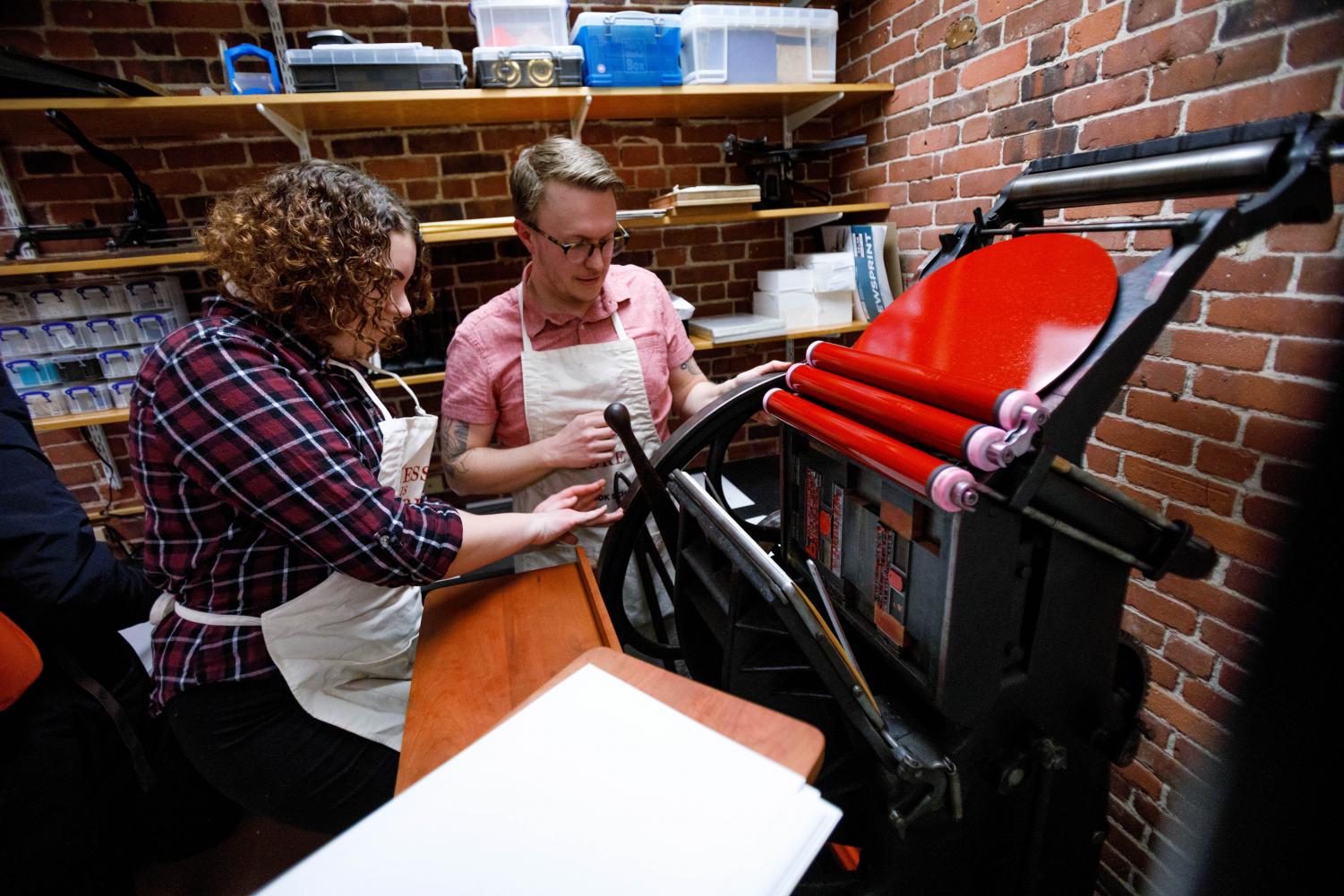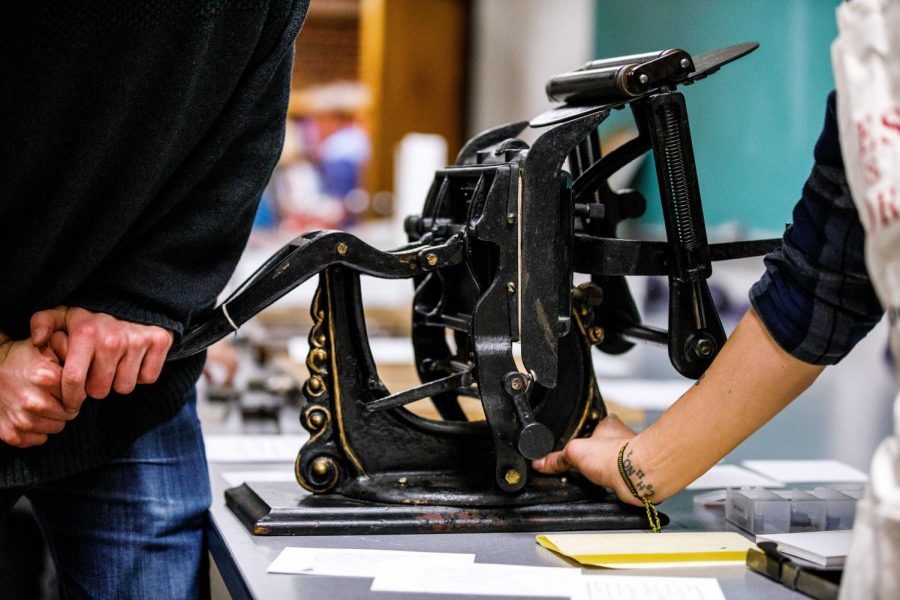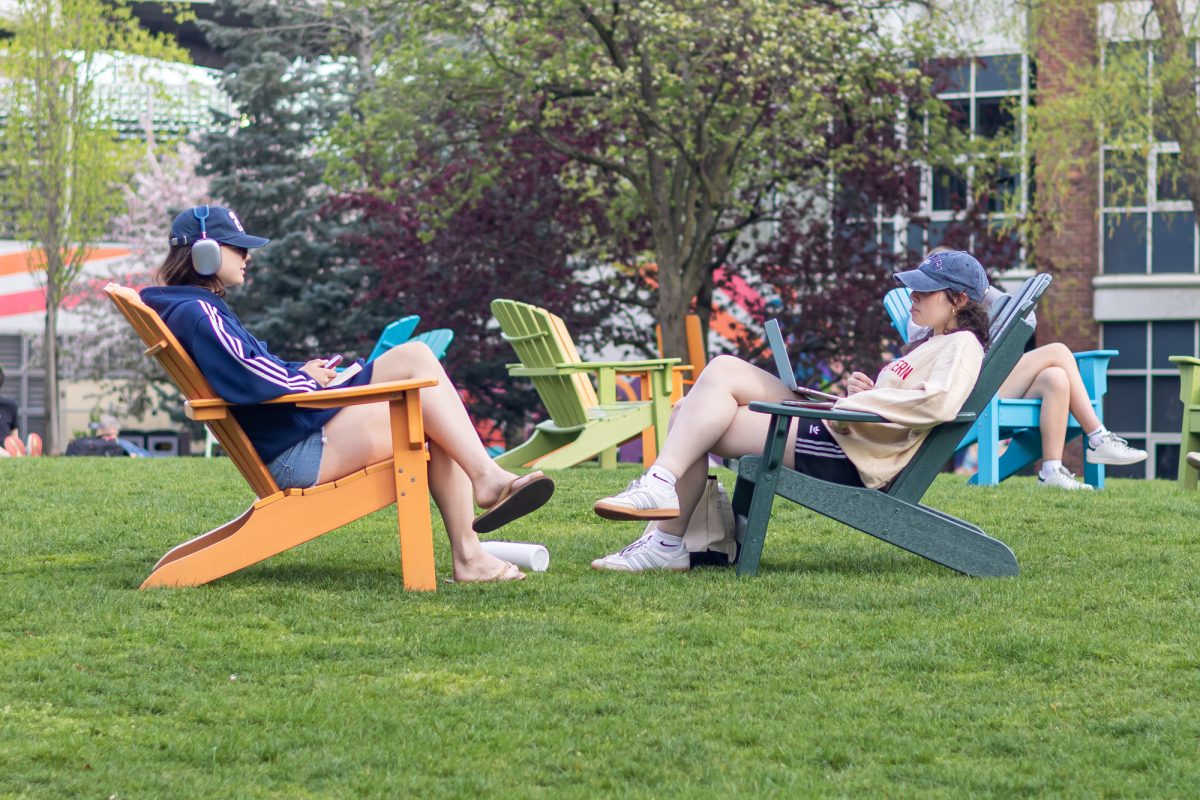Printing press from 1896 installed in Holmes Hall
Students use the newly installed printing press located in Holmes Hall.
February 13, 2019
The English department installed a 19th-century platinum printing press last month in Holmes Hall.
The printer, located in the Huskiana Press printing studio in Holmes 489, was built in Boston in 1896, said Ryan Cordell, an associate English professor at Northeastern. An operator can print text by arranging metal letters in a tray, placing ink on the printer and pumping a lever. Cordell, the director of Huskiana Press, hopes the new printer will teach the Northeastern community about modern and vintage printing methods.
“This printer is a way of connecting with the history of textual production,” he said. “It shows the relationship with contemporary and historical technology, like 3D printers that can create image blocks to use for printing.”
Cordell is especially interested in exploring how to combine 3D printing with historical printing technology. Cordell will use the printer, a Golding Pearl #14 model, to teach his English students about book history. Ultimately, he hopes people will learn how to operate the labor-intensive printer.
“Once we have a community working in press, we’re hoping we’ll have hours where people can come in,” Cordell said.
David Medina, a third-year doctoral candidate studying English, helped set up the printing press, which was assembled by the Museum of Printing in Haverhill, Massachusetts. He said the printer will interest anyone who wants to explore older technologies.
“We’ve been disconnected, I feel, from the technologies we now consider antiquated,” Medina said. “Now there’s a revival, reexamination and re-imagination of what these technologies do and what they’re like.”
Ivy Pepin, a fifth-year English major, came to the Huskiana studio to see a historical printing press in action.
“[This is] something I’ve wanted to learn for a long time,” she said. “It represents a nice move toward slower methods of creating things and slower thinking.”

Ryan Cordell, the director of Huskiana Press, shows off the printing press Feb. 12.
The studio is hosting printing workshops for people who are interested in learning more about the printer. The studio and workshops are open to the Northeastern community, and Cordell said anyone is welcome to learn more about the printer.
“We’re trying to build community in this space,” Cordell said. “It’s doesn’t matter if you’re an English major or you don’t think you know about printers.”
Though Medina has conducted research about book history, he was surprised by how much labor and ink the printer needs for a small pamphlet. He said the printing press has changed the way he approaches his English research.
“This is a new thing for Northeastern, but it’s more than an exciting piece of technology,” Medina said. “It’s something that’ll fundamentally change the way we think about things we take for granted, like communication and preserving information.”







